

There’s a lot going on right now and that speaks well of the shape the post-viral disease field is in. While the field lacks the infrastructure it needs at places like the NIH to thrive, more people from more different places are pushing for these diseases than ever before. Last month, Health Rising reported about the Portuguese (Portuguese!) ME/CFS and Long COVID Conference. This month, it’s the “Unite to Fight” German Long COVID and ME/CFS Conference.
Check out some of the things happening below:
UniteToFight2024 Conference

Over 6,000 people have already registered.
Take the UniteToFight 2024 Long COVID and ME/CFS Conference put together by German long-COVID and ME/CFS patients. Over 6,000 people have already registered for the 2-day free online conference running on May 15th,16th. (Videos will be available for viewing afterwards.)
The dozens of speakers run the gamut from the familiar (Carmen Scheibenbogen, Resia Pretorius, David Putrino, Akiko Iwasaki, Ron Davis, Bhupesh Prusty, Amy Proal) to the new (many new). (Notice, though, how many of the now familiar names would have been new to the ME/CFS community pre-COVID: the post-viral field has really grown.)
It’s the new, or newish, presenters that are coming up with novel ideas I find most interesting. Here are some of the many talks given during this three-day conference.
- Prof. Dr. Bernhard Schieffer – will talk on “Targeting the HDL Proteome for the Treatment of Post-COVID Syndrome”. The HDL proteome – that’s lipids – and lipids have shown up a lot recently in ME/CFS. Apparently, Dr. Schieffer has done a proteome (protein) analysis of the HDL which I’m pretty sure has never been done before and found some targetable anomalies. Nice!
- Prof. E. Wesley Ely, MD MPH – is a relative newbie who has gone all in on long COVID. We’ll learn about his unique baricitinib REVERSE-LC trial. The title of the talk, “a pathway to discovery”, suggests that Ely is trialing baricitinib not simply to see if its helpful but is using the trial to understand what’s going on in the immune systems of long-COVID patients.
- Dr. Rae Duncan will talk on “Long Covid Phenotyping” i.e.; doing deep biological dives in order to find to successful treatments.
- Amy Proal Ph.D – (“Pathogen persistence in Long Covid and ME/CFS: evidence and research considerations”) – Amy Proal is not a new name, but she and the PolyBio Research Foundation have their fingers and toes on one of the hottest topics in long COVID – pathogen persistence. If anything new is happening in this important field, hopefully we will hear about it during her talk.
Register here
Institute For Neuro-Immune Medicine Conference May 10th
INIM’s free annual one-day conference is tomorrow. The speakers include Nancy Klimas, David Systrom, Dr. Bateman and Jaime Seltzer. Check out the lineup and register for the event.
Beautiful New ME/CFS Website and Film
Elizabeth Ansell did a wonderful job building her #NotJustFatigue website and short film. The website explains the basic facts about ME/CFS and has a nice timeline of critical events (yah!) – all in striking colors. Her 15-minute film makes clear the dramatic costs this illness can impose. This is a great way to introduce people to ME/CFS. The website was clearly a labor of love.
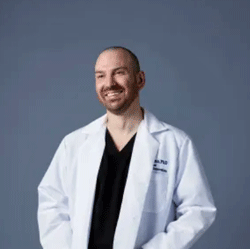
David Putrino at Mt. Sinai has completely embraced long COVID.
Solve M.E. Webinar
Comparing immunological signatures between Long Covid and ME/CFS – May 8th – This webinar happened yesterday, but when it’s up on the website, it should be a doozy. David Putrino is leading several research efforts at the Mt. Sinai Center. How the similarities and differences in the immunological signatures between ME/CFS and long COVID play out may be crucial in determining which treatments will work in both.
Open Medicine Foundation
Tracking Hormonal Fluctuations in ME/CFS and Long COVID in the “Mellow” study. It’s so good to see this work being done. Hormones are like the elephant in the room that everyone knows may make quite a difference given the gender imbalance but which are almost completely ignored in ME/CFS and long-COVID research. Nancy Klimas’s modeling work, for instance, shows that testosterone is likely protective in these diseases – which may be one reason why more women than men get ME/CFS. Finally we have a study that’s tracking them.
Unraveling Chronic Complex Illnesses Week by Week – the Unraveled Patreon Podcasts
Drs. Kaufman and Ruhoy don’t have all the answers, but man are they looking hard for them. Their latest Patreon podcasts include:
- Drug Series Pts I and II: antimicrobial drugs, a session on several drugs (type unknown I haven’t seen it).
- How to prepare for surgery.
You do have to pay to watch the podcasts but at <$10 month, it’s well worth it.
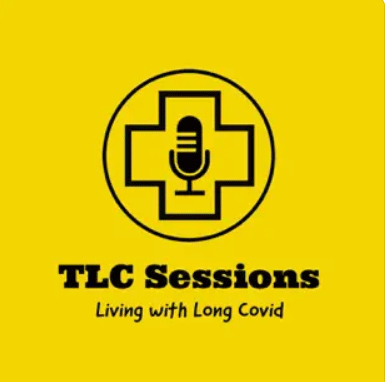
Untreated long COVID is proving to be an economic nightmare.
TLC Sessions
We can’t have an update without mentioning the TLC Sessions podcast! In their latest out, two intrepid long-COVID podcasters – both struggling with long COVID – dive into the eye-opening, eyebrow raising economic impact of long COVID. They have Dr. David Cutler, who recently upped his 2022 projection for the U.S. – a cool $2.6 trillion by then – by almost 50% – to a jaw-dropping $3.7 trillion. You know what they say – once you get to a trillion – you’re talking real money.
- Check out the podcast.
Jarred Younger – the Neuroinflammation Man Talks!
Jarred Younger has been pounding out short, informative podcasts over the last couple of months in his lab’s YouTube channel. His latest one asks, why, why, why the immune cells in our brain – the microglia – have decided to turn against us! Jarred believes hypersensitive microglia could account for all the symptoms in these diseases. I’m waiting with bated breath to learn if his new testing procedure is picking up signs that the immune cells from the body have invaded the brain. That video will hopefully be coming up soon.
Not Quite a Ghost!
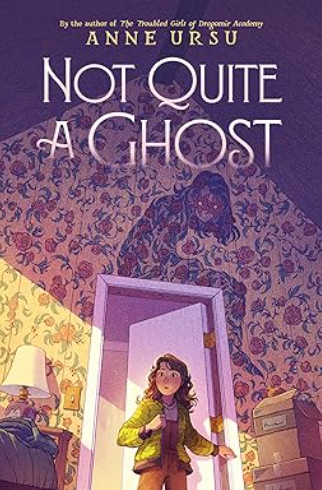
In “Not Quite a Ghost”, Violet contends with bad magic, bad doctors, and ME/CFS at the same time!
Anne Ursu’s “Not Quite a Ghost” is notable for a couple of things. For one, Anne Ursu is not simply a patient with a story – she’s a well-known author and patient with a story. Her many recognitions and awards include being a National Book Award nominee, a Kirkus Prize finalist, and as a ‘best book of the year’ by Parents Magazine, Publishers Weekly, Amazon.com, and School Library Journal; i.e. she can really write! Her forte has been young persons’ fantasies and mysteries.
In her books, mysterious things keep happening and so it is in “Not Quite a Ghost” – the story of Violet, a middle-school girl who falls prey to a mysterious illness that her doctors just can’t pin down. You can feel the stairs start to creak with the first line of the book, “The house stood a little apart from the block as if it did not fit in”. Why it had been on market for so long and could be had for such a good price could not be explained…(or could it)?
The creepiness accelerates as one after another of Violet’s doctors discount her symptoms, leading her to question whether she’s making up her illness. Meanwhile the house is getting more and more threatening (check out what’s above the door in the book cover).
The tension builds and builds – it’s quite a page-turner! – until Violet finds a resolution for both her doctor and house problem.
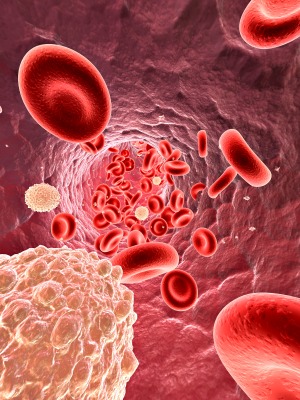
Could something in the blood because causing ME/CFS?
Something in the Blood…
In a different kind of horror story (lol), Simon McGrath interviews two researchers in the UK who are on the search one of the most tantalizing of all findings in ME/CFS – that something in the blood is either contributing to or causing this disease.
Several studies have found this and this one – using DeCode ME samples – and more patients, aims to go deeper.
NIH Intramural Study Symposium
The NIH Intramural study led by Avindra Nath may be the most important study ever done in ME/CFS. It’s important not as much for what it found as for what it could/should lead to – more NIH funding for ME/CFS. The NIH said they wanted solid ground to study ME/CFS and it appears that, despite the small study size – they got it.
Health Rising will cover the Symposium in a future blog, but suffice it to say that the concern regarding “effort preference” was cleared up. You can find the video of the one-day symposium here.
 Check out the Long COVID MD podcast
Check out the Long COVID MD podcast
Yes, it’s by an MD with long COVID! A Stanford trained MD, Dr. Zheest Khan, explores everything from how to get through a doctors appointment, to the latest research and treatment options, and advocacy. Her latest is a talk with David Tuller – postviral investigative reporter extraordinaire.
Get on the Autoimmune Registry
The Autoimmune Registry Inc. (ARI) – which is modeled on the National Cancer Registry – isn’t just for known autoimmune diseases – it’s also collecting data on suspected autoimmune conditions such as long COVID, fibromyalgia, and ME/CFS The Registry is using this information “to help researchers identify trends and gain a deeper understanding of this complex class of conditions” – a class of conditions which includes ME/CFS, FM and long COVID.
- To join the registry, go here
- Have questions about the registry? Email aaron@autoimmuneregistry.org
Ground COVID Truths From Eric Topol and Akiko Iwasaki
Two 2024 Time Top 100 award winners talk about COVID and the future of medicine including what looks like a major jump in vaccine effectiveness with nasal vaccines.


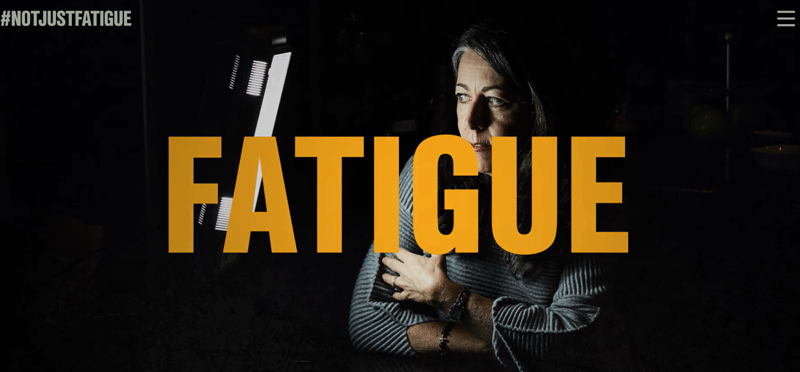
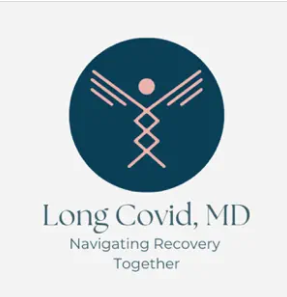 Check out the Long COVID MD podcast
Check out the Long COVID MD podcast



Sheesh I have hope the younger folks coming up will have some answers in their lifetime.
Some other books one might want to check out are Pride’s Children (trilogy) When Force Meets Fate and Love and Fatigue in America.
Thanks! I finally read Love and Fatigue in America – superb book!
Agree!
About Bernhard Schieffer: he is a cardiologist from Marburg University Clinic/Germany who has been involved in their interdisciplinary Post-Covid clinic and has been the first director of one of two Post-Vac clinics in Germany.
Right now browsing some media reporting on Unite2Fight conference – while there could be more, representation of ME/CFS in media in Germany is much more accurate than it was a couple of years ago. (Apart from the one BPS proponent that had still been touring the media, that is). Take for example this description from a local newspaper: “If a critical overload limit is reached, a massive worsening of symptoms can occur, a kind of collapse. Experts also call this PEM (Post Exertional Malaise). It often occurs with a time delay after overload and can last for days, weeks or months. In the worst case, such an event permanently deteriorates the patient’s general condition.” Spot on :-), makes me wonder if they know someone personally with ME/CFS.
I went to enroll in the auto immune registry but decided against it. With so many data breaches now I’m hesitant to provide information that they don’t need such as my mailing address, my height, etc. I think they should consider whether they really need that information.
Thanks Cort – this is a great round up. Always appreciate your work.
The Natalie Thomas video is great!
My 16 year old daughter has long covid / ME/CFS, and it does feel like hormones might be playing at least a part. She did the DUTCH test recently, we should get the results in 2-3 weeks.
Also interesting to see Griffith University are trialing LDN.
Go Aussies!!!
All good news! There is so much going on it is difficult, if not impossible, to keep up with it all.
For the UnitetoFight conference, it’s very interesting to me that Dr. Maria Van Kerkhove (Director at Epidemic & Pandemic Preparedness & Prevention at WHO, Geneva, Switzerland) will be part of it – I’m assuming from the long COVID connection (she was in the news throughout the pandemic) – it’s really good LC/ME is on the WHO radar (although I don’t see the title of her talk listed on their website yet).
And I’m always interested to hear about Todd Davenport’s work (University of the Pacific) for the latest in PEM research – he’s also a Scientific Advisor with Workwell Foundation.
And Ed Yong’s perspective on ME/LC is always invaluable (his articles in the Atlantic during the pandemic).
Avez vous déjà pensé de prendre plusieurs patients et analyser leurs moëlle osseuse???? C’est le seul endroit où on est pas allé. En tout cas jamais entendu parlé!
Bone marrow, that is new. Is it painful to test it, draw a sample?
Avez-vous déjà pensé analyser la moëlle osseuse de patients atteints de l’EM?? Et pourquoi pas le faire???
i can watch nothing. but i hope that other causes then inflamation for ME/cfs do not disapear because there are but since LC they disapear more and more. also much about LC. ofcource want that they get heko but ME.cfs, FM to…
Following up on discussion on this blog https://www.healthrising.org/blog/2024/04/26/klimas-chronic-fatigue-long-covid-gulf-war-illness/, where Betty Mekdeci said a product called Daylyte helped with sleep and googling it, I found this product seemed to contain also microdose lithium and boron:
I have low testosterone (possibly related to low DHEA), and boron is said to amp up testosterone levels. I therefore plan to try out both lithium and boron microdosing, which are available as separate supplements.
And a song is released about MECFS & Lyme! It’s so good and has a chance of chart success. https://m.youtube.com/watch?v=pt7Bpy27d1M&pp=ygUNcmVubWFrZXNtdXNpYw%3D%3D
Thanks Cort!
Do you know how to determine if we have hypersensitive microglia?